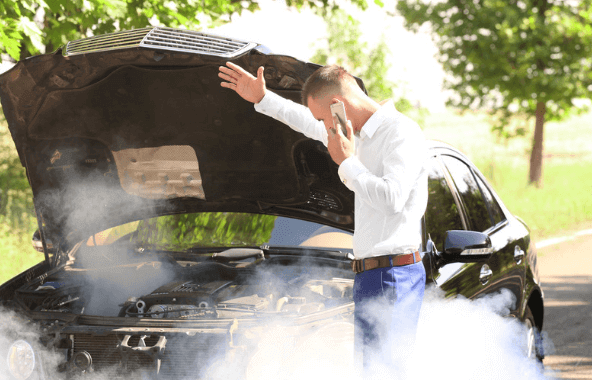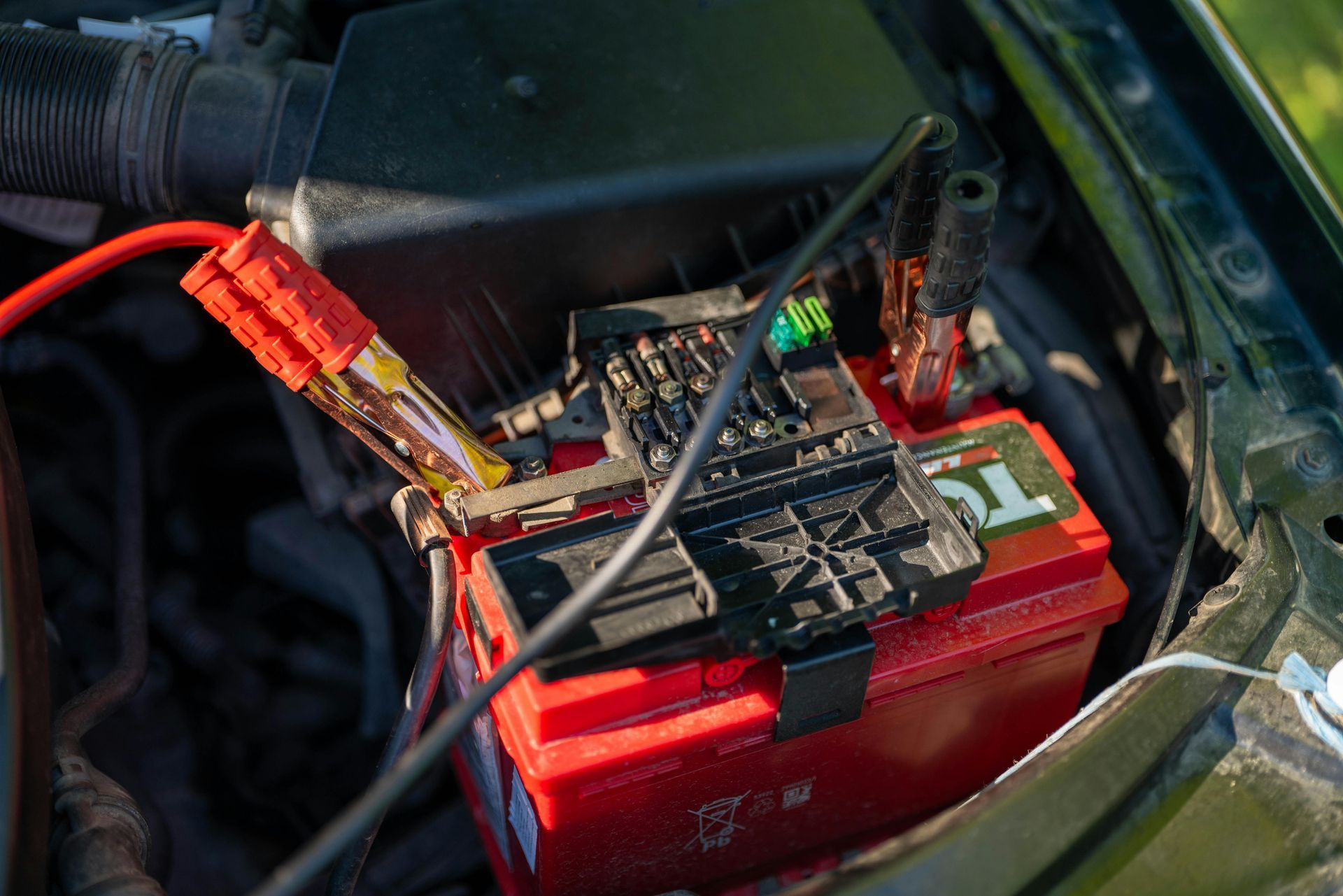3 Types of Car Engine Smoke
Auto Shops Located in: Chapel Hill, Durham, Taleigh, Apex, and Cary North Carolina

What do you do when your engine starts smoking? Is my car safe to drive? There are actually 3 types of engine smoke your car might produce from under the hood. The mechanics at Chapel Hill Tire are here to provide further insight and answer your questions about engine smoke.
1: White Engine Smoke
White engine smoke is commonly caused by burning radiator fluid (also known as coolant or refrigerant). You might also notice a sickly sweet smell (often compared to that of butterscotch or maple syrup). Radiator fluid contains ethylene glycol, which is chemically similar to sugar compounds—causing a sweet smell when burning.
Is white engine smoke dangerous?
While it might smell sweet, the radiator fluid is toxic to ingest, according to the CDC. Thankfully, ethylene glycol cannot be absorbed well through the skin. You might notice eye or lung irritation when breathing it in, so it is best to limit your exposure.
As for your car, it can overheat without the cooling properties of your radiator and its fluid. You can read our guide to engine overheating here. In this case, it is best to visit a mechanic immediately to avoid further damage to your engine. If your engine begins to overheat, safely pull over and give it time to cool down.
2: Black Engine Smoke
Dark engine smoke is a sign of excessive or improperly burning fuel. Most commonly, this issue is caused by a fault somewhere in your fuel injection system.
Naturally, gasoline is highly combustible. If you fear your car is catching on fire, FEMA recommends you immediately:
- Safely pull over and turn off your car.
- Have all passengers exit the vehicle as quickly as possible.
- Get at least 100 feet away from the car to avoid harm from the flames and toxic fumes.
- Call 911.
Black engine smoke could also stem from an electrical issue in your vehicle. Even if your car is not on fire, approach black engine smoke with caution. Do not continue driving without consulting a mechanic for insight.
3: Blue or Gray Engine Smoke
Smoke with a blue hue indicates burning engine oil. Engine oil can burn when it is far overdue for a routine oil change—or if you have replaced this fluid with the wrong oil type. Oil may also burn if you have a failing part somewhere in your engine, including a broken valve, leaking seal, or faulty piston ring.
Engine oil is vital to keeping your vehicle protected. Burning oil indicates a severe and immediate risk to your engine.
Is my car safe to drive?
How safe your car is to drive will depend on the source of the smoke. This could be a sign that your car is long overdue for a routine oil change. However, it may also signify a deeper engine issue. If you are unsure of your car’s safety, it is best to have it towed to a mechanic.
Chapel Hill Tire: Mechanic Car Care in the Triangle
If you fear your car may be a safety hazard to yourself or others—call 911 immediately. However, most of these issues simply require the insight and care of a mechanic. The experts at Chapel Hill Tire are here to help. We can find the source of your engine’s problems and repair them for you.
Chapel Hill Tire proudly serves the Triangle with our 9 locations across Apex, Raleigh, Chapel Hill, Carrboro, and Durham. Our local mechanics also commonly serve surrounding communities, including Knightdale, Cary, Pittsboro, Wake Forest, Hillsborough, Morrisville, and beyond. We invite you to make your appointment, browse our promotions, or give us a call to get started today!















